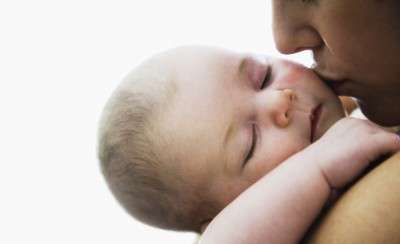Health information causing new mums anxiety

Pregnancy and motherhood are both wonderful and worrisome times – could public health campaigns and social stereotypes be contributing to anxiety for mothers? Researchers from Monash University have identified links between perinatal anxiety and social and health messages that women are exposed to during the perinatal period, the period immediately before and after birth.
In a paper recently published in Women's Studies International Forum, Dr Heather Rowe and Professor Jane Fisher from the Jean Hailes Research Unit within the School of Public Health and Preventive Medicine have examined perinatal anxiety and its causes.
Dr Rowe said that perinatal anxiety disorders are common but much less attention has been paid to anxiety than depression.
"While a degree of anxiety is inevitable at this time in a woman's life, the complexity of modern pregnancy and the postpartum period appears to have a downside, delivering over-simplified public health advice as well as professional and social scrutiny," Dr Rowe said.
The research identified several themes underpinning perinatal anxiety: managing women's 'maternal image'; single-message health promotion campaigns; evidence based decision making; 'maternal instinct'; and the concept of risk. The researchers concluded that health and social messages can be unrealistic and distressing, causing confusion and stigma that can undermine a mother's confidence.
"Public health campaigns with a strict single message such as 'breast is best' can make women feel pressured, and can lead them to feel guilty and ashamed if they make an informed choice not to breastfeed. Similarly the 'Safe Sleep Space' campaign to prevent SIDS can cause parents to over-estimate the likelihood of SIDS and lead them to be excessively watchful and worried," Dr Rowe said.
"We need evidence based, public health campaigns and non-judgemental advice to ensure that women feel supported and know that society values the work of mothering."
The researchers recommend that health professionals address the inaccurate stereotype that mothering is instinctive, which can paint a highly idealised image of how motherhood 'should' be and replace this with the message that caretaking for an infant is a set of learned skills that will develop over time.
"By providing realistic and evidence based information to assist decision making, health professionals can help challenge the unhelpful messages that bombard women in pregnancy and motherhood, and benefit both mother and child," Dr Rowe said.
More information: "Do contemporary social and health discourses arouse peripartum anxiety? A qualitative investigation of women's accounts," Women's Studies International Forum, Volume 51, July–August 2015, Pages 56-65, ISSN 0277-5395, dx.doi.org/10.1016/j.wsif.2015.05.002


















